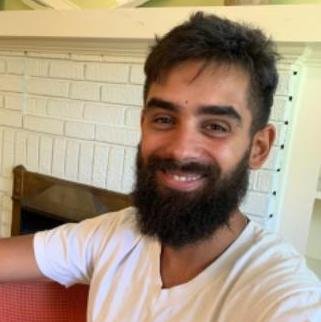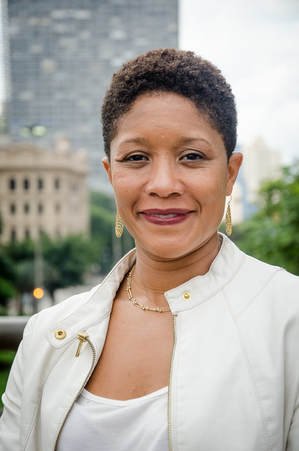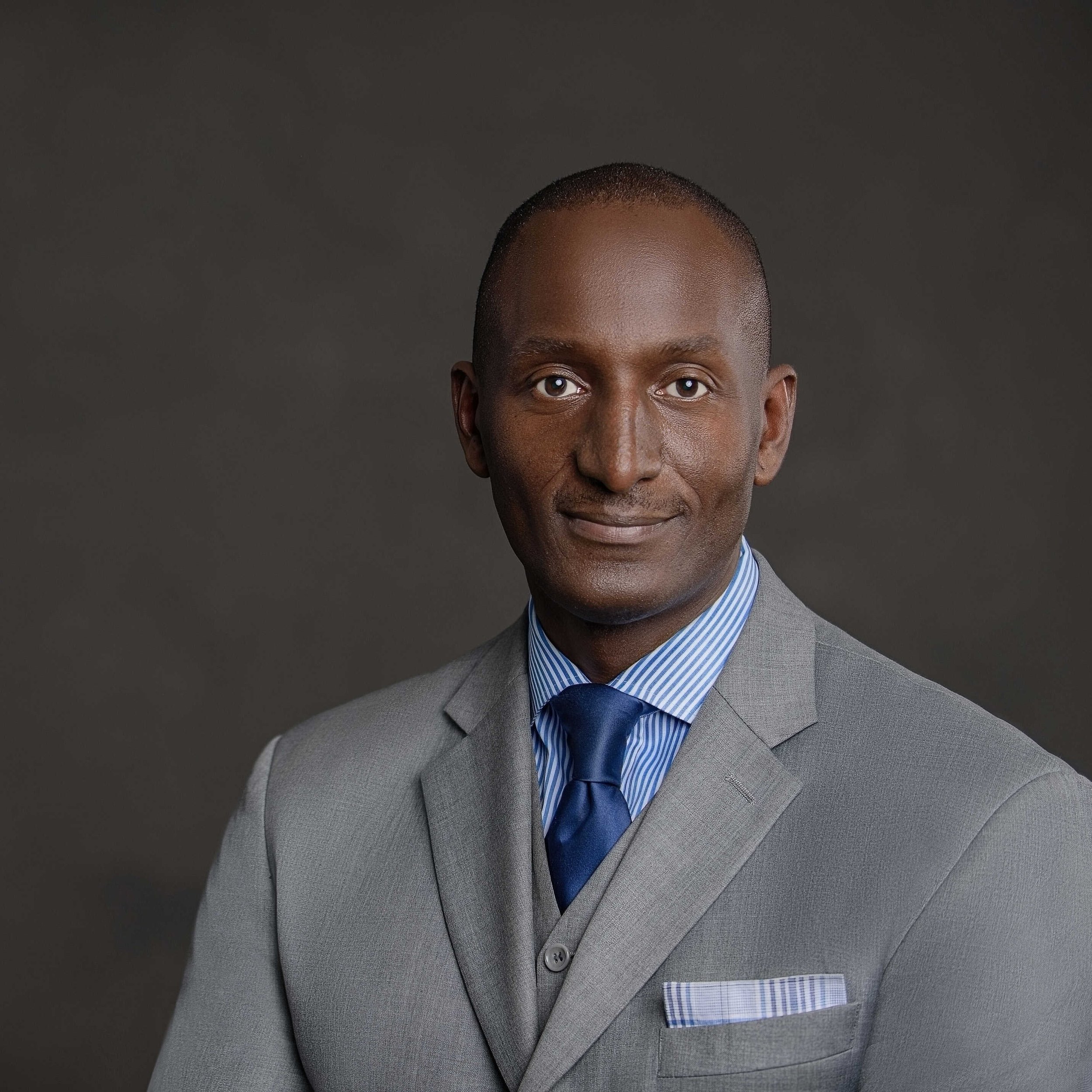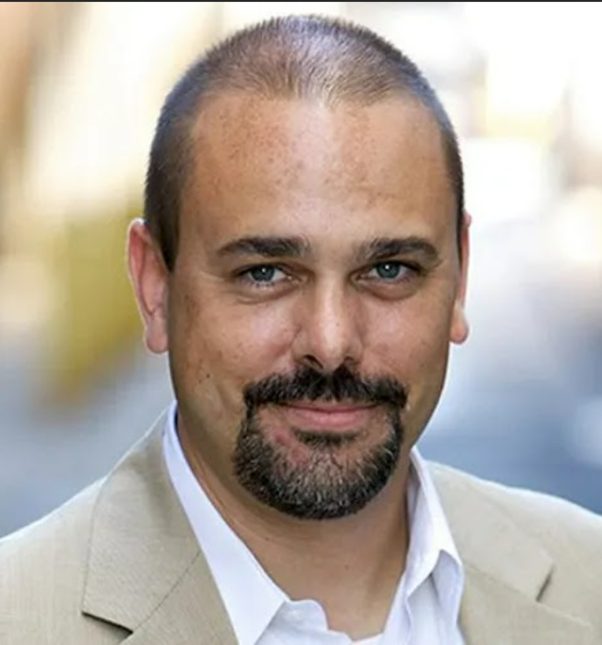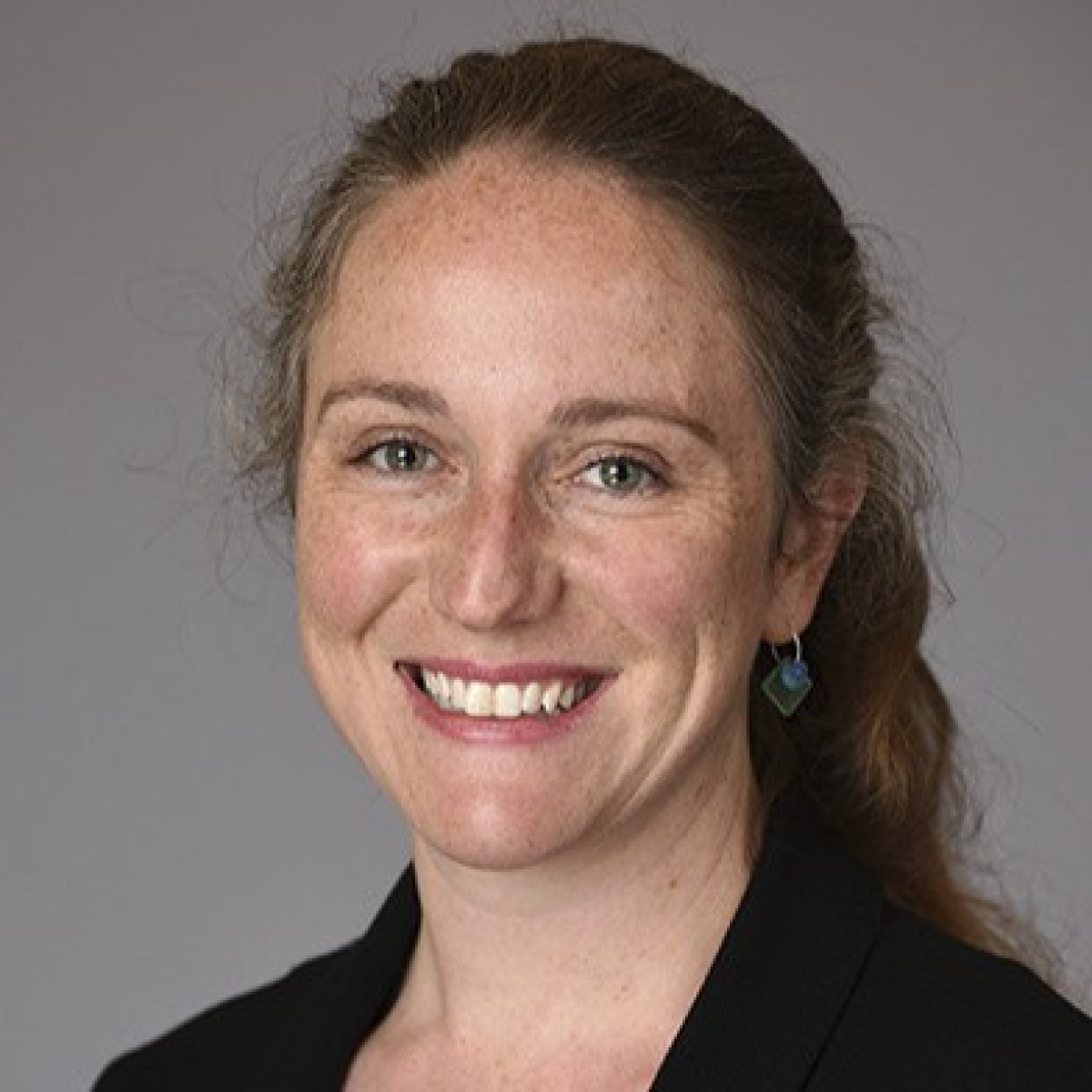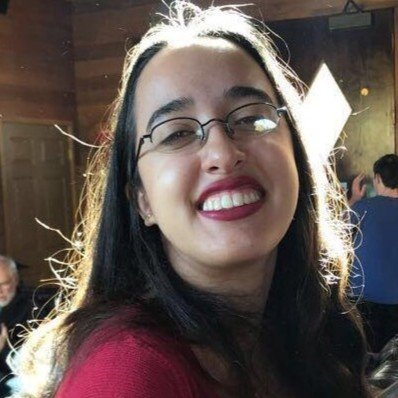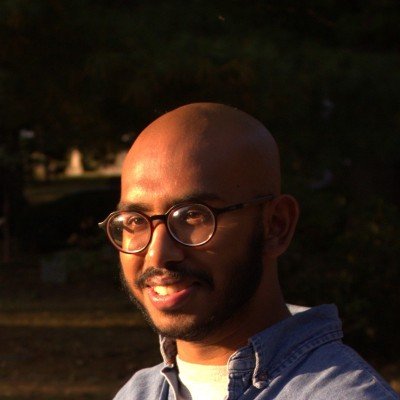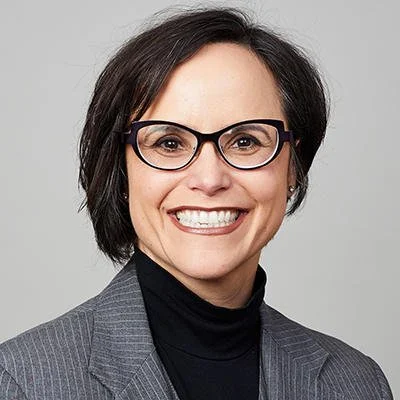SICSS-Howard/Mathematica’s Bite-Sized Lunchtime Talks Showcase Leading Voices in Data Science
This blog is part of the 2022 series “The Future of Computational Social Science is Black” about SICSS-Howard/Mathematica, the first Summer Institute in Computational Social Science held at a Historically Black College or University. To learn more about SICSS-H/M’s inaugural start, read last year’s blog “Welcome SICSS-Howard/Mathematica 2021” or our first blog “Uncovering new keys to countering anti-Black racism and inequity using computational social science.” If you are interested in applying to participate in SICSS-H/M 2023, check out our website.
Bite-Sized Lunchtime Talks (BSLT) are a SICSS-Howard/Mathematica site-specific innovation that introduces participants to organizations doing cool things with data. 2022 offered a variety of organizations that proved interesting and inspiring to our participants.
Tuesday, June 21, 2022
Michael Miller
Michael Miller PhD, the Just Tech Program Director from the Social Science Research Council, a non-profit that seeks to cultivate innovative and interdisciplinary research for the public interest, started off the BSLT series. Miller's pre-recorded session and his live Q&A session highlighted how the burden of ill-conceived technological designs are disproportionately assumed by minority populations. He explained how the persistence of biases and errors in artificial intelligence systems are not only a technical problem but a human problem – one that remains poorly understood by the general public and utterly absent in policy decisions. This inspired Miller to establish Just Tech to bridge this gap. By bringing together expertise and experiential knowledge, Just Tech seeks to cultivate “a new ecosystem of research and social engagement [that] informs public policy and radically imagines just futures where social and public interests drive technological change.” He also took the opportunity to introduce the participants to Just Tech’s new fellowship. Miller encouraged participants to apply so that they may build a different technological future rooted in justice, equity, and knowledge. This fellowship finds people with “different epistemology and experiential knowledge,” creating technology and policies that center the ideas of those who previously could not have the opportunity to provide input.
Wednesday, June 22, 2022
The founder of the Cite Black Women Collective, Christen A. Smith PhD, joined us as the next speaker. Smith started Cite Black Women Collective as an organization that seeks to promote a radical praxis of citation to reward and acknowledge Black women’s intellectual production, as their work often remains sidelined and undervalued. In her session, she explained that, “[a] citation is much, much, much more than just a bibliography – it is a system of acknowledgment…it is a way that ideas get validated.” By promoting the citation of Black Women, Smith hoped her campaign would compel scholars to start critically questioning how race and gender prefigure their everyday practices so that we all start to actively integrate Black women’s work as the core of their curriculum.
Gabriel Varel and Katherine Ally Zaslavsky from varyCSS, an organization dedicated to support underrepresented scholars in their respective fields, also participated in Wednesday’s BSLT. During their pre-record, they discussed the “astonishing lack of diversity in who is being cited in slides and syllabi” for Computational Social Science based on numbers they gathered through their Literature App. VaryCSS hopes to welcome underrepresented scholars by hosting a collaborative database of those who can be reached to speak at conferences, lead data science workshops, or be cited for updating or creating new syllabi.
Smith (CBWC) and Varel (varyCSS) teamed up for a joint live Q&A echoing each other about how a lack of diversity and support dissuades emerging scholars of color from pursuing Computational Social Science. While challenges of representation remain, Varel reminded the participants that they will continuously keep working globally to “ inspire, write, create knowledge and be in solidarity for each other as African descendants.”
Thursday, June 23, 2022
Randal Pinkett PhD the Chief Executive Officer and Pete York the Chief Data Scientist at BCT partners, a minority-owned consulting, training, and analytics firm, joined us on Thursday. They focus on how precision analytics enable individualized interventions across a wide-range of issues while mitigating systemic and individual bias during human-machine interface. During their lunchtime pre-record session, York introduced the audience to precision analytics: “a recommended set of interventions that are uniquely tailored to someone’s needs equitably by analyzing existing administration data.” From this foundation, BCT provides their clients with custom tailored training, institutional adjustments, and guidelines that would evaluate identified inequities. Pinkett then explained how this individualized approach mitigates bias seen in black-box neural networks since each sequential instruction can be subject to oversight and review.
During the live Q&A, participants asked about the changes needed to be made in the data science field to mitigate bias. Pinkett pointed out how many data models “are not bringing in that lived experience into the data….” If algorithms are divorced from people’s perspective, bias seeps into the decision system by universalizing certain attributes. York added on to Pinkett’s comment by pointing out the rampant biases found in data sets, saying artificial intelligence (AI) “is only as good as the representativeness of the data set itself.” The persistence of bias within AI systems and the absence of discussion on the lack of representation of certain data are reasons why there needs to be an increased willingness to fix the collection process. The pair ended the Q&A by reminding the participants about this, saying “Technology [is] just highlighting human biases and if we blame the machines, which are neutral, they will definitely make it worse if we don't do our job.”
Friday, June 24, 2022
UC Berkeley’s Research Data Management Team and Research IT presented the next BSLT. As an early leader in data privacy and data security, the University of California worked with Research Data Management and IT to set guidelines that integrated privacy and cybersecurity protocols into the storage and management of research data throughout its lifecycle. Chris Hoffman PhD, the Associated Director of Research IT, explained that without these protocols, sensitive research data is vulnerable to being stolen and misused by malicious cyber-actors; thereby, breaking the trust between researchers and their research subject and harming them. As participants started pursuing their own research designs, Erin Foster, the Service Lead for the program, shared about existing projects that have “a commitment to not sharing data to certain entities” to protect the confidentiality of the subjects. Ann Sackman, Berkeley’s Digital Service Librarian, asked them to be “mindful of communities that you might work with for your research and the ethics of dealing with those collaborators.” She recommended that scholars should publish their data in a repository, which provides long-term security to mitigate the misuse of sensitive information.
In light of this, the participants in the Q&A session sought advice to implement these data management practices since their institutions don't have mature data management programs. In response, Hoffman encouraged participants to build communities to learn proper data management practice and pressure school administration to adopt practices like dual identification.
Monday, June 27, 2022
Hannah De los Santos PhD, Lead Data Scientist, Model-based Analytics Department, from MITRE Corporation was our next Bite-Sized Lunchtime Talk speaker. MITRE is a nonprofit dedicated to providing actionable information for decision-makers by fusing and visualizing complex data. MITRE is chartered to bring innovative solutions to federal and state agencies through federally funded R&D centers and public private partnerships. In the pre-recorded lecture, De los Santos discussed how big data can be used to uncover previously unknown inequities. Diving into a project they worked on together, they explained how their use of big data enabled them to uncover “an association between the Home Owner Loan Corporation neighborhood grade [redlining] and mental health.” Because this information was not previously unknown, many state agencies inadvertently exacerbated pre-existing inequalities by providing inadequate resources for mental healthcare in these communities. In response to the findings, MITRE is devising a series of policy recommendations that will enable federal and state agencies to use “evidence-based investment and decisions related to health and social policies and programs..." rather than outdated generalization.
During the Q&A session, De los Santos was joined by Siamun Habib, an Associate Data Scientist for a discussion on early career opportunities at MITRE and deeper questions about balancing between understanding the “scope” of client work and remaining involved in affected communities.
Wednesday, June 29,2022
Lisa García Bedolla
Lisa García Bedolla PhD, Vice Provost for Graduate Studies and the Dean of the Graduate Division at the University of California Berkeley, discussed the importance of employing survey methods in work she and the Berkeley Campus-Wide Institutional Survey Research and Data Collection conducted. According to Garcia Bedolla, these methods account for the plurality of student experiences without subsuming them under the mantra of generalizability. She went on to describe that students attending UC Berkeley and American universities are no longer the archetypical young white men without familial or financial responsibilities, and the non-traditional student needs to be accounted for so that Berkeley may offer an inclusive and supportive environment. She discussed how dummy variables, response rate, post-stratification, incentives, and a confluence of other factors, complicate the representativeness of school surveys. During the pre-taped session, she contended that normative social science methods generate “nice pretty datasets that work really well in the classroom, but not very much what data looks like in the real world.” Bedolla showed the audience how she pursued this goal by sending surveys that are explicitly designed to allow more granular categorizations that allow the school to be more attentive to issues students address.
With some of the participants at SICSS-H/M hailing from UC Berkeley, the conversation became more specific. Some expressed concern over how survey data may over-identity and be weaponized against minority students during the live Q&A. Bedolla reassured those students by sharing her own experience of taking part in a research project, which failed to protect her privacy as she was the only latina, political science, Yale graduate student at the time. Bedolla explained how this experience informs how her survey staff work to protect student privacy and bring attentiveness to survey collection. Especially as her team is currently working on a dashboard for each department’s financial, demographic, and survey information, they are keeping anonymization top of mind to protect students.
Thursday, June 30, 2021
Mark Duerksen
The Bite-Sized Lunchtime speaker series concluded with Mark Duerksen PhD, a Research Associate at the Africa Center for Strategic Studies, a forum with the mission to “advance African security by expanding understanding, providing a trusted platform for dialogue, building enduring partnerships, and catalyzing strategic solutions.” During his pre-recorded session he discussed the erosion of institutional legitimacy in African countries due to concerted disinformation campaigns. While disinformation is widely associated with Western democracy, Durksen reminded the participants that disinformation is also rampant on the African continent. Duerksen attributed the spread of disinformation to both the political incentives of African governments and the proliferation of online chat groups. African governments are reluctant to regulate disinformation because the political elite often benefit from its spread, and it lacks the resources to combat it. This problem is compounded by Africa’s unique media ecology, wherein family and friends share disinformation amongst their chat groups without critical analysis. The sheer scale and scope of disinformation efforts was illustrated by Duerksen’s study. He revealed that “Inauthentic pages posted 48,000 times and received more than 9.7 million interactions were liked by over 1.7 million accounts.” The consequence of this has led some to doubt vaccines, elections results, and other issues of publication interest.
The Q&A session expanded on discussions about the changing nature of misinformation on the African continent with Duerksen explaining that disinformation campaigns have become increasingly sophisticated. He noted that foreign disinformation campaigns have started to utilize local residents who are more familiar with the culture and politics of the country to spread disinformation rather than relying on foreign contractors. As the weaponization of disinformation has resulted in large consequences, Duerkson highlighted local efforts in Kenya by researchers to manually flag disinformation. While these efforts are important, they are insufficient. Duerkson stressed the importance for the African Government to forgo political expediency and support the anti-disinformation campaigns.
SICSS-Howard/Mathematica prides itself in offering participants the innovative Bite-Size Lunchtime talk series. We are excited to see how our participants take inspiration from our speakers and incorporate the skills and knowledge they gained from SICSS-H/M into their own work. We also hope to see future partnerships between these organizations and our SICSS-H/M scholars on projects or dissertation work.
For more information about SICSS-Howard/Mathematica, check out our website, follow us on Twitter, like us on Facebook, and join our email list. Apply now!
About the authors
Naniette H. Coleman is a PhD candidate in the Sociology Department at the University of California, Berkeley and a UC-National Lab In-Residence Graduate Fellow (Los Alamos National Lab). Her work sits at the intersection of the sociology of culture and organizations and focuses on cybersecurity, surveillance, and privacy in the US context. Specifically, Naniette’s research examines how organizations assess risk, make decisions, and respond to data breaches and organizational compliance with state, federal, and international privacy laws. Since 2016, Naniette has directed the AAC&U award winning Interdisciplinary Research Group on Privacy/Coleman Research Lab at Berkeley. Naniette holds a Master of Public Administration with a specialization in Democracy, Politics, and Institutions from the Harvard Kennedy School of Government, and both an MA in Economics and a BA in Communication from the University at Buffalo, SUNY. A non-traditional student, Naniette’s prior professional experience includes local, state, and federal service, as well as work for two international organizations, and two universities.
Kevin Chuang is a Legal Studies graduate from the University of California, Berkeley. Kevin was a former research assistant and project lead, in the AAC&U award-winning, Berkeley based Interdisciplinary Research Group on Privacy/Coleman Research Lab. Kevin served as an Event Assistant for SICSS-Howard/Mathematica 2022, focusing on participant experience and background research. In the future, he plans to paralegal before enrolling in a law school privacy program.


